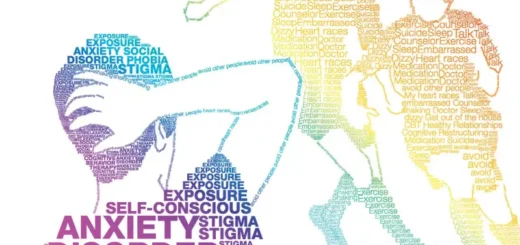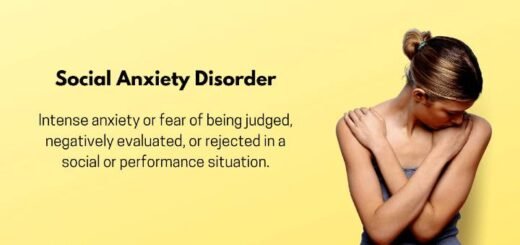Kiwi Humour: A Coping Mechanism or Social Barrier?
In New Zealand, the unique blend of Kiwi humour and social phobia presents a fascinating exploration of coping mechanisms and cultural barriers. Cultural influences on social phobia significantly shape how individuals navigate social interactions, often leading to a reliance on humour as a defence mechanism. This interplay highlights the tension between the desire for connection and the fear of judgment, creating a nuanced social landscape.
Kiwi humour, often characterized by self-deprecation and irony, can either alleviate social anxiety or exacerbate feelings of isolation. Understanding these cultural influences on social phobia is essential for fostering supportive environments. Resources like Social Phobia New Zealand provide insights into how these dynamics operate within the local context, offering strategies for individuals to confront their fears while embracing the cultural idiosyncrasies that define Kiwi identity.
Understanding Kiwi Humour in Context
Kiwi humour is often characterized by its self-deprecation, irony, and an underlying sense of camaraderie. It’s a unique cultural trait that serves as a social lubricant, allowing people to connect and engage in conversations more freely. However, for individuals experiencing social phobia, this cultural influence can create a paradox. While humour can ease social interactions, the fear of judgment can amplify anxiety.
The essence of Kiwi humour often involves poking fun at oneself or at the absurdities of life, which can be a double-edged sword. For someone with social phobia, engaging in this type of banter might seem daunting due to the fear of misinterpretation or ridicule. They may avoid social gatherings where humour is prevalent, leading to isolation.
Understanding this balance is essential. Those struggling with social phobia might benefit from gradually exposing themselves to social situations where humour is a key component. This could include participating in local comedy nights or joining groups where humorous storytelling is encouraged. The aim is to foster a sense of belonging and gradually reduce anxiety. For further support, resources available at Social Phobia can provide helpful coping strategies tailored to New Zealanders.
Cultural Influences on Social Phobia
The cultural landscape of New Zealand significantly shapes the experiences of individuals dealing with social phobia. In a society that often promotes egalitarianism and togetherness, those who feel socially anxious may struggle to reconcile their feelings with cultural expectations. The pressure to be outgoing and friendly can exacerbate feelings of inadequacy.
In New Zealand, the cultural stigma surrounding mental health can also hinder open conversations about social phobia. Many individuals may feel they need to mask their anxiety with humour or appear more confident, which can lead to a cycle of avoidance and increased social anxiety.
Recognizing these cultural influences is vital for both individuals and communities. Support groups and community initiatives that normalize discussions about mental health can significantly help those with social phobia. Engaging in community activities that prioritize mental well-being can also provide a supportive environment for individuals to share their experiences and coping mechanisms. For additional insights, explore resources and community events through Social Phobia.
Strategies for Coping with Social Phobia
Coping with social phobia requires a multifaceted approach that often combines individual strategies with community support. One effective coping mechanism is cognitive-behavioral therapy (CBT), which helps individuals identify and challenge negative thought patterns associated with social situations. This process can be particularly beneficial in a culture where humour is prevalent, as it can help individuals reframe their experiences and engage more positively in social contexts.
Additionally, practicing mindfulness can be an effective tool. Mindfulness encourages individuals to focus on the present moment rather than on fears about social interactions. This practice can be enhanced by participating in local mindfulness workshops or yoga classes that promote a supportive community atmosphere.
Social gatherings, such as community events or local meet-ups, can also provide a non-threatening environment for individuals to practice social skills. Engaging in activities that involve shared interests, such as sports or arts, can serve as a natural way to bond over common experiences. For further guidance and tips on managing social anxiety, consider visiting Social Phobia.
The Role of Support Networks
Support networks play a crucial role in helping individuals navigate their social anxieties. In New Zealand, family and friends often form the initial support system for those experiencing social phobia. However, the effectiveness of these networks can vary based on how well they understand the challenges associated with social anxiety.
Encouraging open discussions about feelings of anxiety can help create a more supportive environment. Friends and family can be educated about social phobia, allowing them to better understand the condition and offer appropriate support. Joining local support groups can also provide individuals with a sense of community and shared experiences.
Participating in group therapy can foster connections with others facing similar challenges, which can be empowering. These groups often utilize humour as a coping mechanism, allowing individuals to share their experiences in a safe space. For resources on finding local support networks, visit Social Phobia.
Humour as a Healing Tool
Humour can serve as a powerful coping mechanism for those dealing with social phobia. In New Zealand, the use of humour in everyday life can mitigate feelings of isolation and anxiety. Laughter releases endorphins, which can improve mood and reduce stress.
Encouraging individuals to engage with humorous content—be it through comedy shows, movies, or social media—can help them reframe their experiences with social anxiety. Moreover, participating in activities like improv classes or stand-up comedy workshops can help individuals face their fears while having fun. These experiences allow for personal growth and can significantly boost confidence in social situations.
Utilizing humour to discuss feelings of anxiety can also provide relief. By laughing at one’s own missteps, individuals can diminish the power of those fears. For practical tips and community resources related to humour and social phobia, check out Social Phobia.
Creating Inclusive Spaces
Creating inclusive spaces is essential for fostering a sense of belonging among individuals dealing with social phobia. In New Zealand, community initiatives that prioritize inclusivity can help reduce the stigma associated with social anxiety. This includes encouraging local businesses to host events that cater to varying comfort levels, such as quiet hours or structured activities that promote social interaction without overwhelming participants.
Schools and workplaces can also play a vital role in this inclusivity. Educating staff and students about mental health can create a supportive atmosphere. Workshops focusing on social skills and anxiety management can equip individuals with the tools they need to navigate social situations more comfortably.
Additionally, organizations can foster inclusivity by offering peer support programs. These can pair individuals with mentors who understand social phobia, providing guidance and encouragement in social settings. For more information on creating inclusive environments, visit Social Phobia.
The Future of Kiwi Humour and Mental Health
As New Zealand continues to evolve, so does the relationship between Kiwi humour and mental health. Increasing awareness of mental health issues has led to more open discussions, reducing stigma and encouraging individuals to seek help. The intersection of humour and social phobia presents an opportunity for cultural growth, where humour can be harnessed as a tool for healing rather than a barrier to connection.
Future initiatives could focus on integrating mental health awareness into community events, utilizing humour to engage and educate the public. This could involve collaborating with comedians and mental health advocates to create shows that address social anxiety in a relatable and entertaining manner.
Ultimately, fostering a culture that appreciates humour while being sensitive to the struggles of those with social phobia can lead to a more inclusive society. Resources and support systems will continue to be vital in this journey, and for more insights and assistance, visit Social Phobia.
FAQs
What is the connection between Kiwi humour and social phobia?
Kiwi humour, characterized by its self-deprecation and irony, often serves as a coping mechanism for many New Zealanders dealing with social phobia. This cultural influence can help individuals navigate social situations by deflecting anxiety through laughter, allowing them to feel more at ease in uncomfortable environments.
How does cultural influence shape social phobia in New Zealand?
Cultural influences in New Zealand, including the emphasis on casual interactions and a laid-back lifestyle, can both mitigate and exacerbate social phobia. While the Kiwi approach to humour may provide a buffer against social anxiety, societal expectations about social engagement can also pressure individuals to conform, potentially heightening feelings of inadequacy or fear in social settings.
Can humour be an effective coping mechanism for social phobia?
Yes, humour can be an effective coping mechanism for social phobia, especially in cultures that value laughter and light-heartedness like New Zealand. By using humour to defuse anxiety, individuals may find it easier to engage socially, reducing the intensity of their phobic responses and fostering connections with others.
What role does societal expectation play in the experience of social phobia?
Societal expectation plays a significant role in shaping the experience of social phobia. In New Zealand, where social interactions are often encouraged, individuals may feel pressured to engage despite their anxiety. This can create a conflict between cultural norms and personal comfort levels, making it challenging for those with social phobia to cope effectively.
Are there any cultural barriers that hinder coping with social phobia in New Zealand?
Yes, cultural barriers such as stigma around mental health and the perception that one should be ‘tough’ or ‘stoic’ can hinder coping with social phobia in New Zealand. These cultural attitudes may discourage individuals from seeking help or openly discussing their struggles, leading to feelings of isolation and worsening anxiety.
How can individuals leverage Kiwi humour to manage social phobia?
Individuals can leverage Kiwi humour by incorporating it into their daily interactions and self-talk. Embracing a light-hearted perspective on social situations can help reduce anxiety and foster resilience. Engaging with friends or support groups that share a similar sense of humour can also provide comfort and a sense of belonging.
What resources are available for those struggling with social phobia in New Zealand?
There are various resources available for those struggling with social phobia in New Zealand, including mental health services, support groups, and online forums. Organizations such as the New Zealand Association of Psychotherapists offer therapy options, while community centres may host social skills workshops that integrate cultural influences and coping strategies.
References
- Social Phobia New Zealand – A resource dedicated to understanding and addressing social phobia in New Zealand, offering support, information, and coping strategies.
- The Unique Kinds of Humour in New Zealand Culture – An article exploring the distinct aspects of Kiwi humour and how it reflects cultural values and social interactions.
- Coping Mechanisms for Social Anxiety: Cultural Considerations – A scholarly article examining various coping mechanisms for social anxiety across different cultures, including insights relevant to New Zealand.
- The Role of Humour in Coping with Anxiety and Stress – A piece that discusses how humour can serve as a coping mechanism for anxiety and social phobia, with a focus on New Zealand contexts.
- The Impact of Humour on Social Anxiety – An article that explores the relationship between humour and social anxiety, providing insights into how humour can help mitigate feelings of social phobia.




